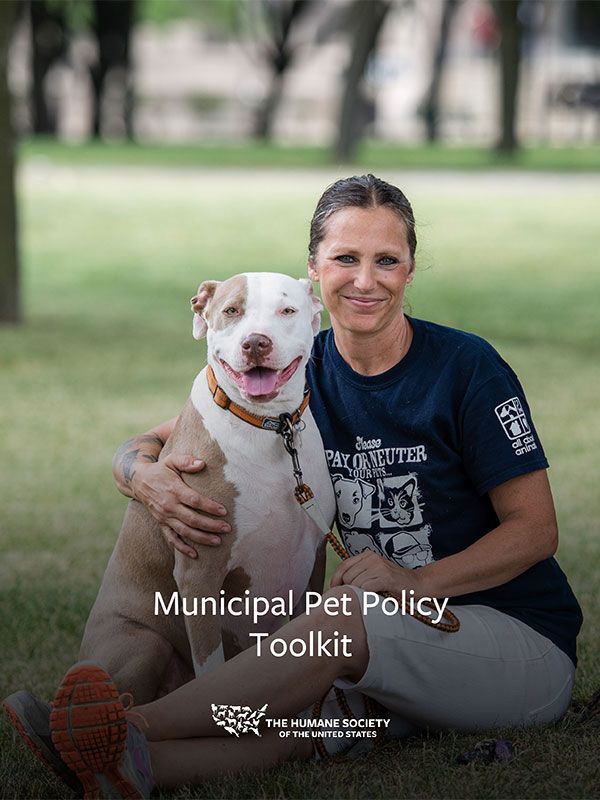Municipal Pet Policy Toolkit
Striking the right balance between support and enforcement

A strong foundation of animal management policies is essential for creating and sustaining humane communities. These policies should balance public health and safety with animal welfare needs, enabling harmonious co-existence between people and pets. The following set of ordinances adhere to the principles described in our toolkit, Municipal Pet Policy Toolkit, which can be downloaded for free below. Please note that many ordinances contain a mix of good and not-so-good language. We note good language and recommend that communities review the parts that are helpful and tailor them to meet the unique needs of your community. Remember—there is no one-size-fits-all policy.
The basics: pet keeping policies
- Humane care—Virginia: § 3.2-6503 and § 3.2-6500
- Humane care (extreme weather)—Palm Beach, FL: Sec. 4-24.(b)(1).a
- Humane care (proper shelter)—Wisconsin: 951.14.
- Pets in cars—Massachusetts: § 174F.
- Pets in cars (Good Samaritan)—Arizona: 12-558.02
- Exotics—Wilkes County, NC: Article IV-A.
- Abandonment (where community cats are excluded)—Clark County, NV: 10.32.010
- Pet Abandonment—Maine: MRS Title 17, §1038
Managing dogs
- At large—Montpelier, VT: Sec. 8-202
- Tethering (total ban)—Live Oak, TX: Sec. 4-10.
- Tethering (restrictions)—Texas: § 821.076-§ 821.081
- Dangerous dogs—Delaware: 16 Del.C. §§ 3071F to 3081F
Cat-friendly communities (for cats, wildlife and people)
- Community cats—Jacksonville, FL: Sec. 462.312.
- Return to Field—Clark County, NV: Sec. 10.06.050
- Community Cats integrated throughout an animal control ordinance – Anne Arundel County, MD: Article 12 Title 4 Animal Control
Housing
- Devocalization/Declaw—California: 1942.7
- Declaw—West Hollywood, CA: 9.49.020
- Pet policy/eviction—New York, NY: § 27-2009.1
- Pet-friendly Publicly Funded Housing—Los Angeles County, CA: Ord. 2020-0001 § 1, 2020
Animal shelters and rescue groups
Document

